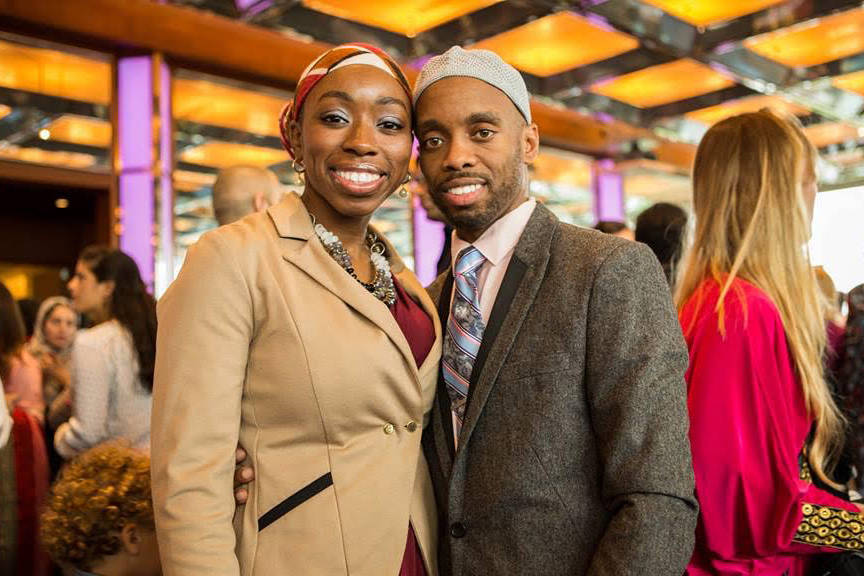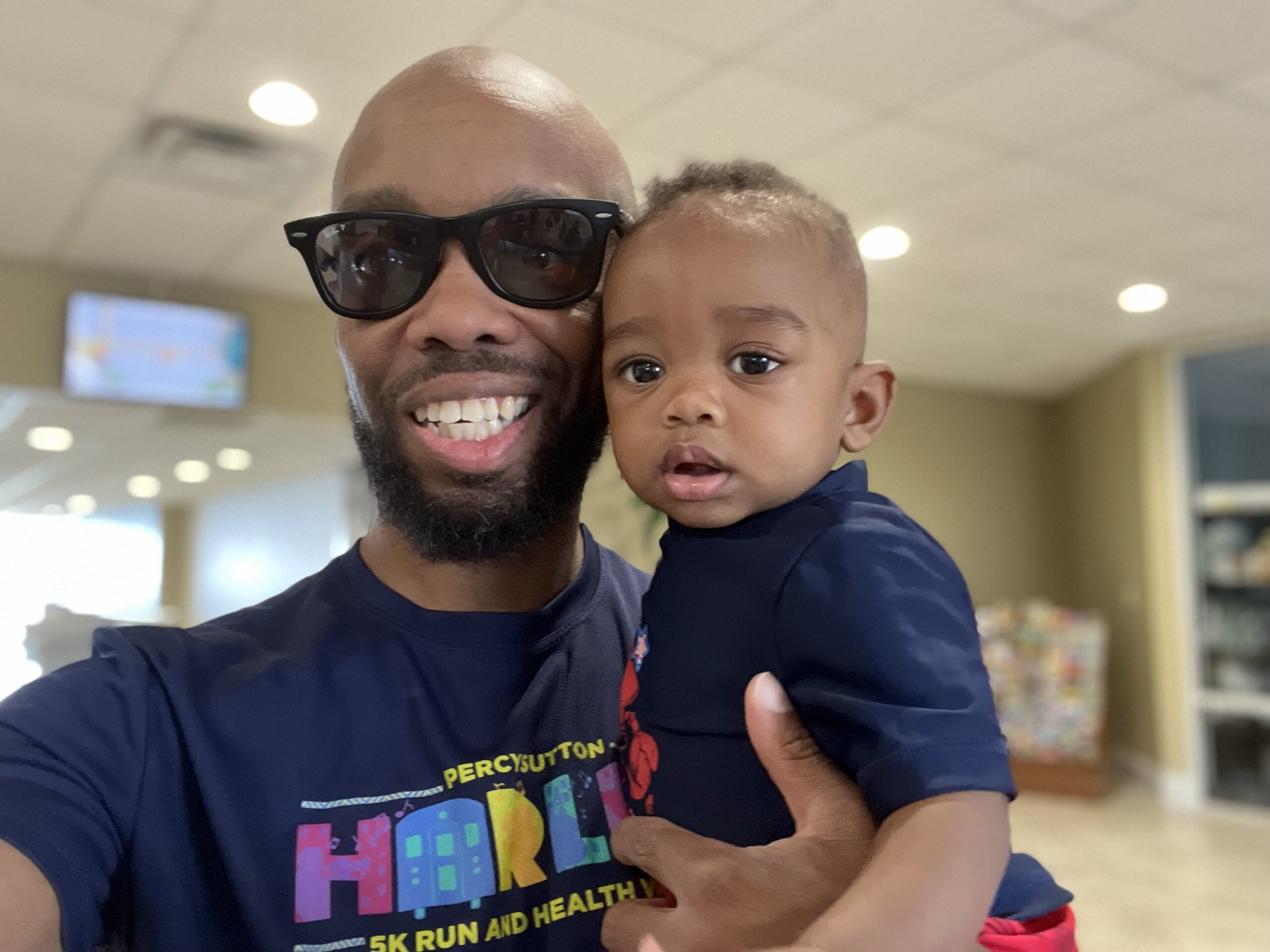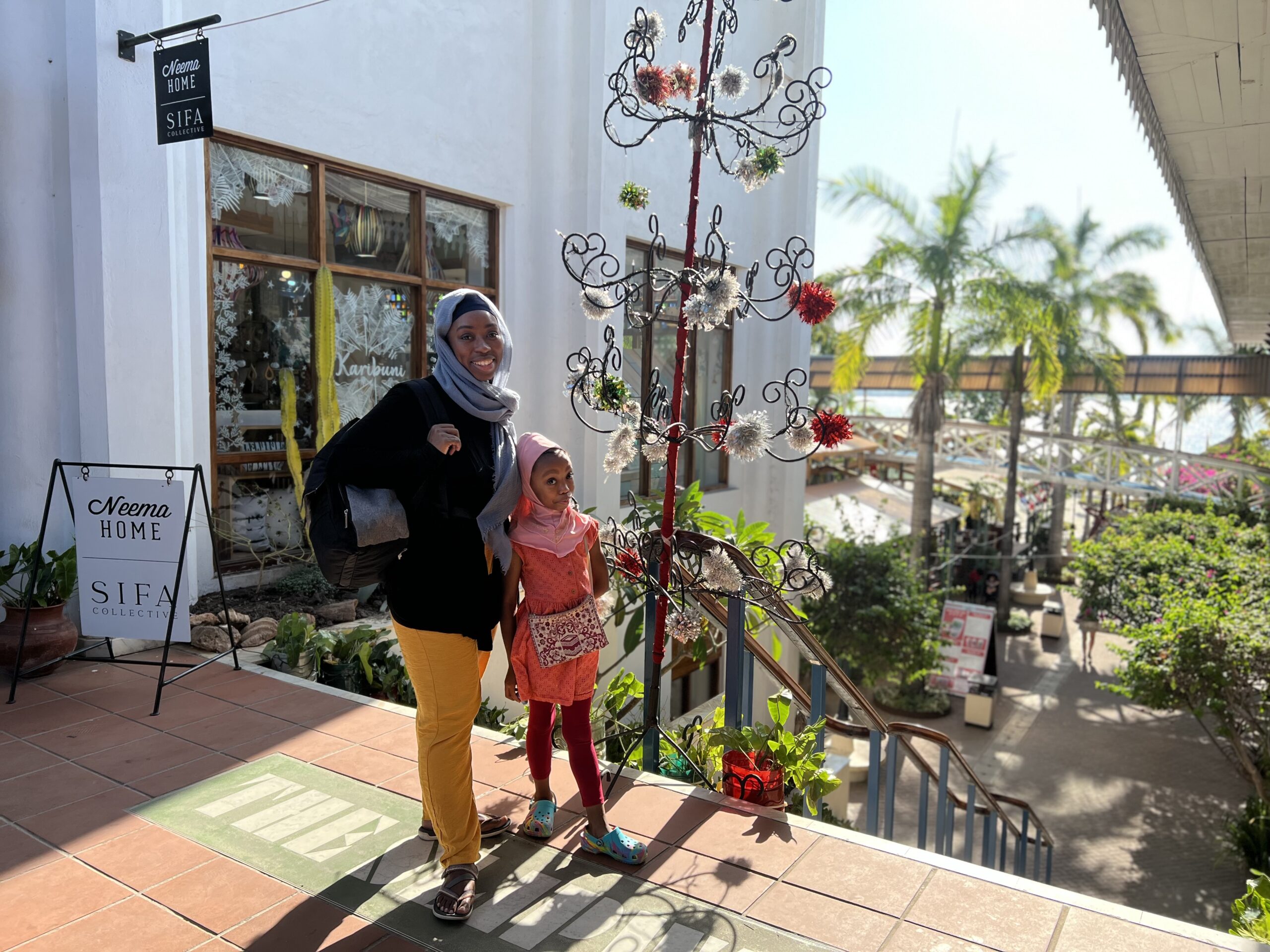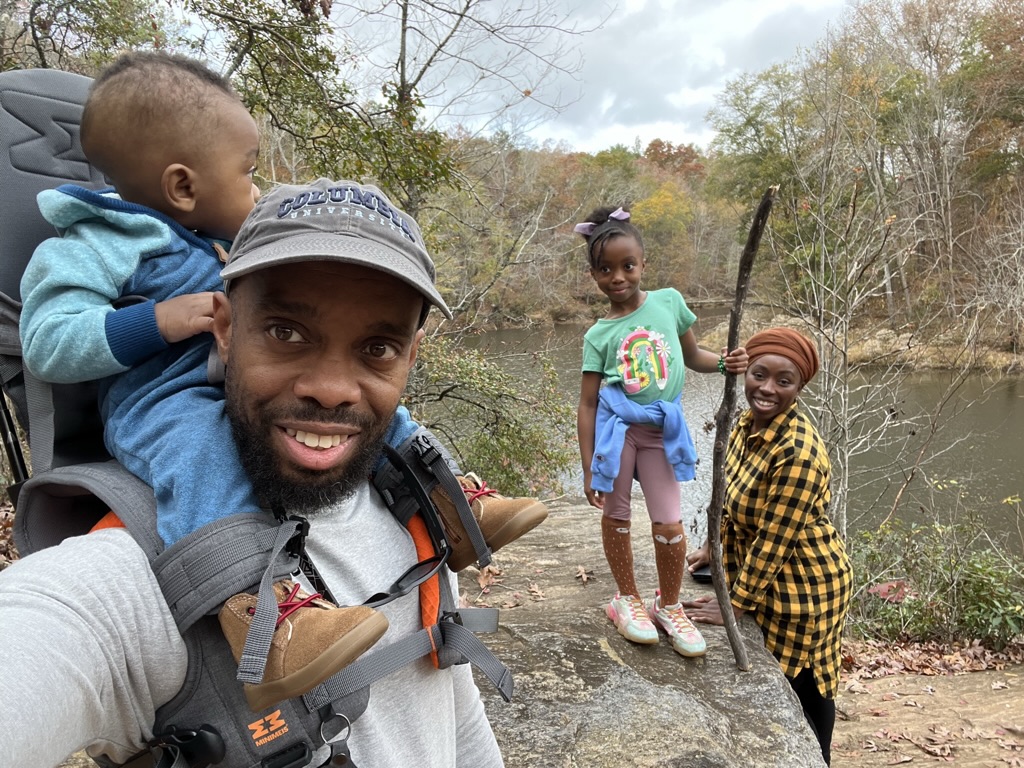By: Sahana Sriram, Associate Consultant and Client Services Manager
In the past 10 years of my work experience, I have seen very few leaders achieve a balance of focusing on their business outcomes alongside the care and growth of their employees. Samira and Yusef, the co-founders of Hyphens and Spaces, lead their organization, team, and clients with both empathy and accountability. To celebrate Black History Month, I interviewed this Black Muslim couple on their approach to leadership.
What does Leading with Love mean to you?
Yusef: For me, leading with love means leading without the fear of being vulnerable. It is essential to recognize the fears you have as a leader and make efforts to conquer them. So that you commit to always striving to be the best version of yourself. When you have a genuine love for someone, you have to put yourself out there, honestly address concerns, and care about their well-being. It can be difficult at times but I believe you can do the same across an organization and community.

Samira: In order to lead with love, you have to hold yourself with love first. It’s about showing love to all parts of you and then extending that to your team and the world. We have all learned through white supremacists and traditional business cultures to prioritize efficiency, productivity, and a limited scope of knowledge. That culture discounts lived experience as a source of knowledge and requires people to mute their emotional selves. There is little permission to make errors or even pause. It prioritizes fixing and solving problems. This means that even you as a person are trained to operate with a deficit mindset, as a problem to be fixed. That is robotic, not human. On the other hand, when you accept and love all parts of yourself, you can embrace and support others.
What does leading with love look like as leaders of an organization?
Samira: Hyphens and Spaces’ values are rooted in diversity and inclusion. When we were creating job descriptions for our team, we know that a candidate’s contribution to this firm is only one part of their life. We appreciate this aspect of their life but are also respectful of other dreams and characteristics they have as a person. In the context of work, we are always exchanging our time and efforts for money. Relationships between employees and employers can hence be purely transactional and devoid of love. But I believe that work performance can be achieved without erasing different aspects of a person. If you build an authentic space, your employees will be honest about the challenges they are facing to complete a task. They can have an open and transparent discussion about their priorities and responsibilities. It is far more effective. Aligning on work expectations collectively while acknowledging our lives outside the workplace is a great way to hold accountability.
What outcomes does leading with love lead to?
Yusef: It leads to employee satisfaction. People love their jobs more if they have a team or manager that is understanding. For example, if I have to take my kids to the doctor for an appointment on a workday, I would want my employer to acknowledge my responsibility to my children and family as well as my work. I feel like that’s not the norm in corporate America. So it’s refreshing when it’s seen. Leading with love will make employees contribute to their workplace with passion, purpose, and commitment.

How can you lead with love while existing in a capitalist world?
Samira: It’s tough. If you’re concerned with maximizing profit, you are operating in a formulaic, predictable, efficient way. While doing that, you tend to sacrifice creativity, compassion, and learning through experience. Sometimes, even non-profit leaders can be more focused on the numbers, whether that’s the number of clients served or money saved, that they can build a hostile or toxic environment. For example, you can be a team that provides support to unhoused populations. But when engaging with your constituents you shame about their situation and rush them through a process rather than offer encouragement and empathy. An act of love in this context is to build connections with the unhoused people you support, acknowledge the systemic injustice that impacts their living situation, and discover their humanness through your work.
Yusef: If the non-profit supporting unhoused people that Samira used as an example was our client, I would encourage them to have systems in place that support building empathy into their work culture. By having those key elements in place, you’re setting up your work environment for your employees to have compassion for the people that they serve. Successful leaders should always work toward supporting their employees’ whole selves in order to inspire their employees to work towards building a successful business. At Hyphens and Spaces, we serve organizations that further social causes. Therefore, it is important to us to always work towards building a safe place for open communication and high employee morale. We embed that into our culture and the way we work, which is reflected in the way our team serves and communicates with our clients. The result is our current clients continue to express interest in working with us after our work is completed.
How do your identities impact your leadership style?
Yusef: For me, leading with love hasn’t been synonymous with being a Black male professional. I faced challenges in my early professional career because growing up I didn’t see the male leaders in my environment demonstrating empathy and being vulnerable. Therefore, I had to embark on that journey to define my own approach to leadership which includes love and vulnerability. The love I learned to express from being a husband and father contributed to my journey. It helped me explore masculinity beyond the stereotypical traits associated with being a Black man and a leader. I’m on a journey to be a father that parents with love, and who doesn’t give in to fears of failure and anxiety. I have grown as a parent and I have gotten to witness firsthand my children grow in confidence and leadership abilities. It has also, taught me to be a more effective manager and organizational leader.
Samira: It’s hard to parse out the various identities I carry and their individual influence on my leadership. But as a Black Muslim American woman, I’ve felt like an outsider or an outlier in multiple spaces throughout my life. The mainstream approach to power and leadership marginalized me and others like me. Therefore I had to design an approach that circumvents the ideas perpetrated by the hegemonic style of leadership. I have been encouraged by studying Black leaders from both history and the present. People often talk about the courage required to lead freedom movements but I believe that it must have taken a tremendous amount of love to be hopeful, inspiring, and bold in the face of adversity and oppression. Many of the leaders who led liberation movements weren’t incentivized or paid. They were publicly criticized and attacked. To fight through that I believe took an immense love for the people they fought for. They loved the idea of liberation and loved themselves to harness the courage needed.

Any last thoughts you want to leave the leaders with?
Samira: I read a quote by Desmond Tutu that resonated with my idea of leadership recently – “My humanity is bound up in yours, for we can only be human together”. Love to me is to be aware and humble in my humanity. It’s recognizing that without loving and respecting another human being, I cannot be wholly human.
Yusef: You can use us as your resource. At Hyphens and Spaces, we’re committed to creating a community of people who are practicing new leadership styles and building justice-centered organizations. You don’t have to do it alone. For more information, contact Hyphens and Spaces via our intake form here or send an email to [email protected].




